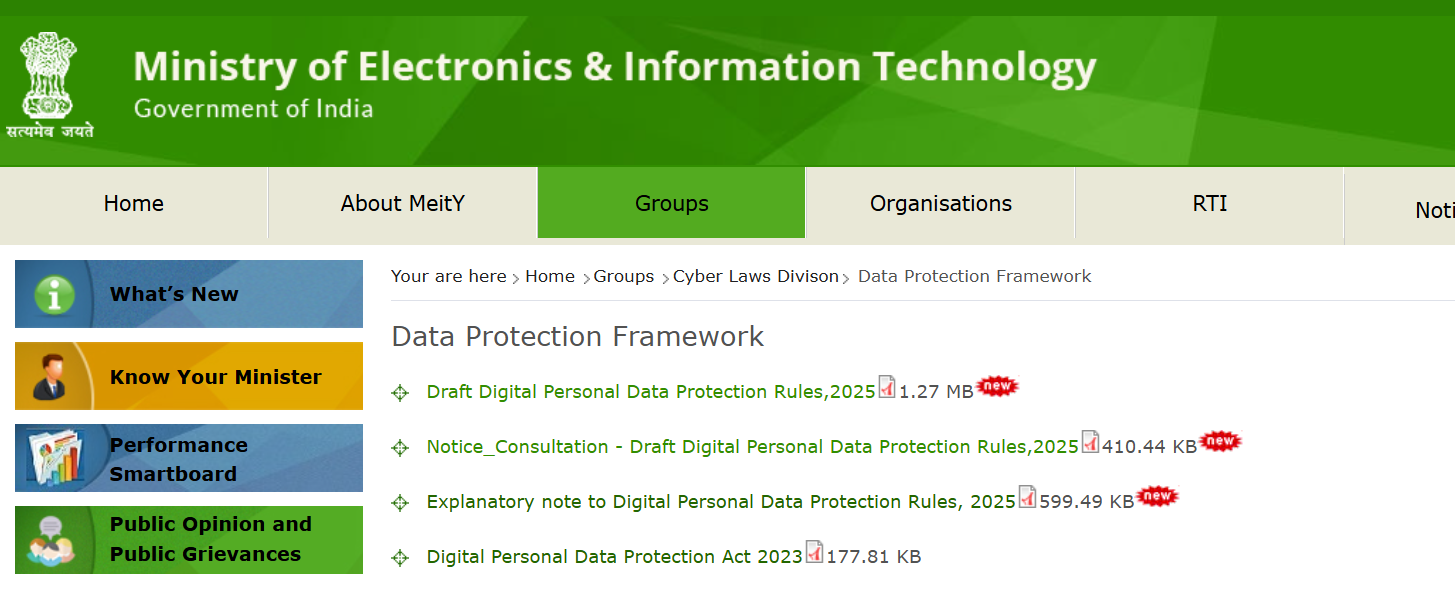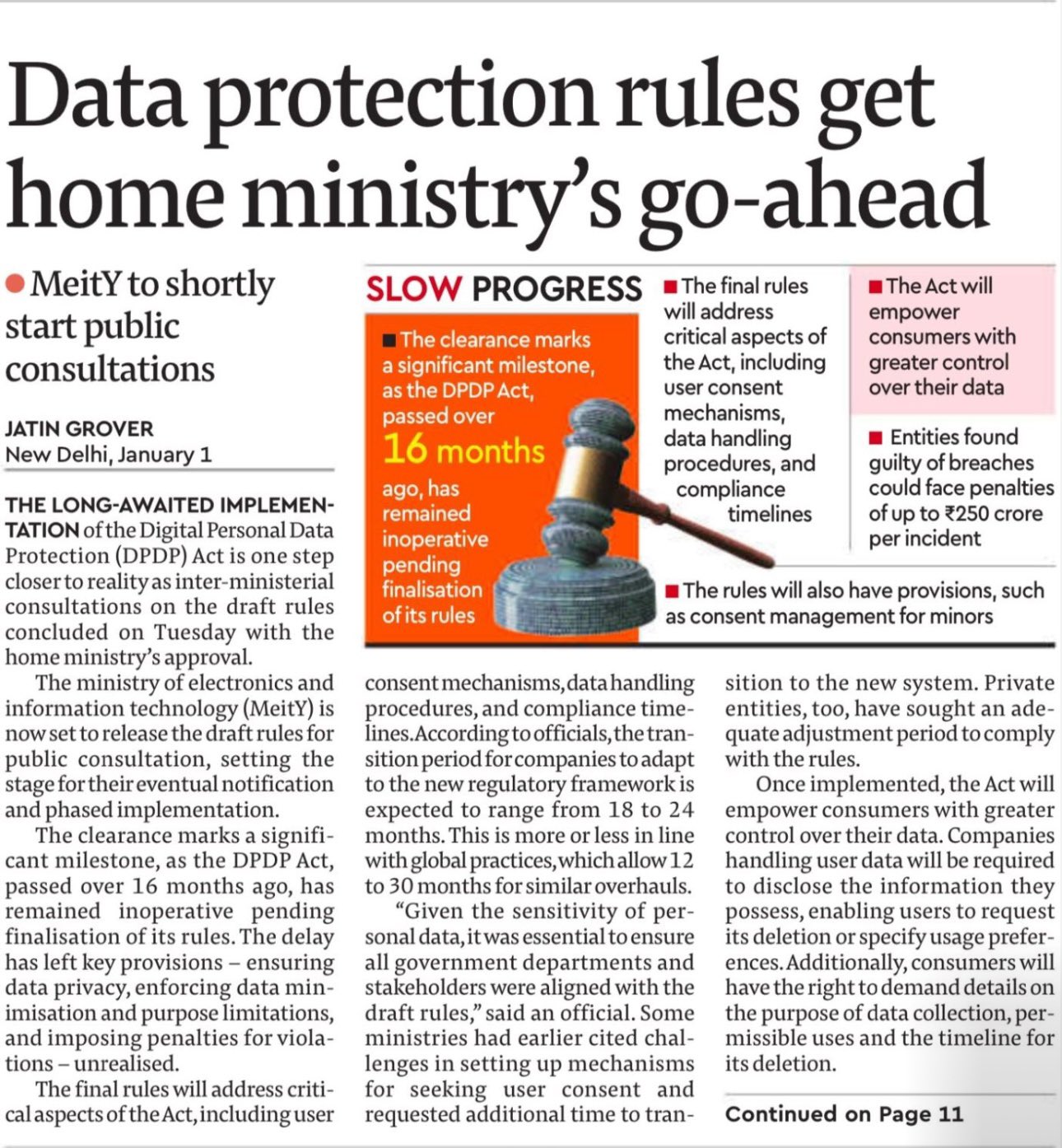The Latest DPDP Rule 2025: What You Need to Take Care
The Digital Personal Data Protection (DPDP) Rule 2025 is reshaping how businesses handle personal data in the digital age. Here’s a detailed but straightforward explanation of what it means, who it affects, and how you can stay ahead of the curve—with a focus on data security and compliance services.
1. What is the DPDP Rule 2025?
The DPDP Rule 2025 is a government regulation designed to protect individuals’ personal data while ensuring organizations manage it responsibly. With digital services becoming a part of everyday life, this rule aims to prevent misuse of data and ensure transparency.
Key features include:
- Informed Consent: Organizations must clearly explain why they collect data and get permission before using it.
- Data Rights for Individuals: People can ask companies to delete their data, provide a copy of it, or even transfer it to another provider.
- Strong Security Measures: Businesses must implement advanced measures to safeguard data from breaches and misuse.
- Penalties for Non-Compliance: Strict penalties, including significant fines, are imposed for breaches or non-adherence to the regulations, ranging from ₹50,000 to ₹250 crores, depending on the severity of the violation.
This rule ensures a balance between innovation and privacy, creating a safer digital ecosystem.

2. Which Industries are Affected?
The DPDP Rule 2025 impacts every industry that deals with personal data, regardless of size or sector. Whether directly or indirectly, most organizations interact with user information, making this rule universally relevant. Key sectors include:
- Technology: From social media platforms to app developers, the tech industry is at the forefront of compliance requirements.
- Healthcare: Hospitals and clinics must secure patient records and maintain confidentiality. Mismanagement of health data can attract heavy penalties.
- Finance: Banks, insurance companies, and fintech firms handle sensitive financial and personal information, making them high-priority sectors for compliance.
- E-commerce: Online businesses need to protect customer details, payment data, and browsing behaviors.
- Education: Schools, universities, and EdTech platforms must safeguard student and faculty data, ensuring compliance with the regulations.
- Telecommunications: Mobile and internet service providers must ensure secure communication data storage and prevent unauthorized access.
Beyond these examples, even small businesses, startups, and NGOs need to evaluate their data handling practices. No matter your industry, if you collect personal information—even email addresses—you need to comply.
3. Key Takeaways
Here’s a quick rundown of what the DPDP Rule 2025 means for your business:
- Consent First: Ensure users know what they’re agreeing to before collecting their data.
- Minimize Data Use: Only collect the information you need and nothing more.
- Secure Data Storage: Use advanced security services to protect against breaches and leaks.
- Compliance is a Must: Non-compliance can lead to hefty fines, potential lawsuits, and damage to your reputation.
- Empower Users: Respect individuals’ rights to access, delete, or transfer their data.
- Penalties Are Serious: Non-compliance can lead to fines ranging from ₹50,000 for minor lapses to ₹250 crores for major breaches or intentional misuse of data.
4. Consent Manager: A Crucial Tool
A consent manager helps organizations manage user permissions efficiently. This helps to:
- Simplify compliance with the DPDP Rule.
- Automate consent collection and revocation.
- Build trust with users by being transparent about data usage.
By integrating a consent manager into your system, you can avoid manual errors and ensure legal compliance effortlessly.
5. Role of a Data Protection Officer (DPO)
A Data Protection Officer (DPO) is like the watchdog for data privacy in your organization. Their job is to ensure you’re following the rules and protecting sensitive information. Here’s what they do:
- Conduct regular risk assessments to identify and address vulnerabilities.
- Monitor how data is collected, stored, and shared to ensure compliance.
- Train employees to handle data responsibly and understand the legal requirements.
- Manage incidents like data breaches, ensuring timely reporting to regulatory authorities and mitigation.
6. Do You Really Need These Designations?
Not every organization will need a full-time Consent Manager or DPO. However, consider these factors:
- Size of the Business: Larger companies handling significant data volumes should invest in these roles. Rest can outsource it.
- Type of Data: Businesses dealing with sensitive personal or financial information must prioritize these positions.
- Risk Level: High-risk sectors like healthcare, finance, and technology benefit the most from dedicated compliance experts.
If hiring isn’t feasible, outsourcing these roles to trusted security service providers can be a cost-effective alternative. Partnering with experts ensures you’re always compliant without the need for full-time staff.
7. Next Steps: Evaluate Your Compliance
Are you unsure if your organization falls under the DPDP Rule 2025? Do you need help implementing security measures and compliance tools? At INVESICS, we specialize in:
- Compliance Assessments: Identify gaps in your current practices.
- Security Solutions: Protect your data with industry-leading tools and strategies.
- Custom Recommendations: Get tailored advice for your business needs.
Penalties for Non-Compliance: Under the DPDP Rule, organizations can face fines ranging from ₹50,000 to ₹250 crores, depending on the severity of the breach. Don’t let oversight cost your business. Read Govt article here.
Contact us today for a free consultation and find out how we can help you navigate the DPDP Rule 2025 with confidence.
Click here to book your complementary assessment now!
